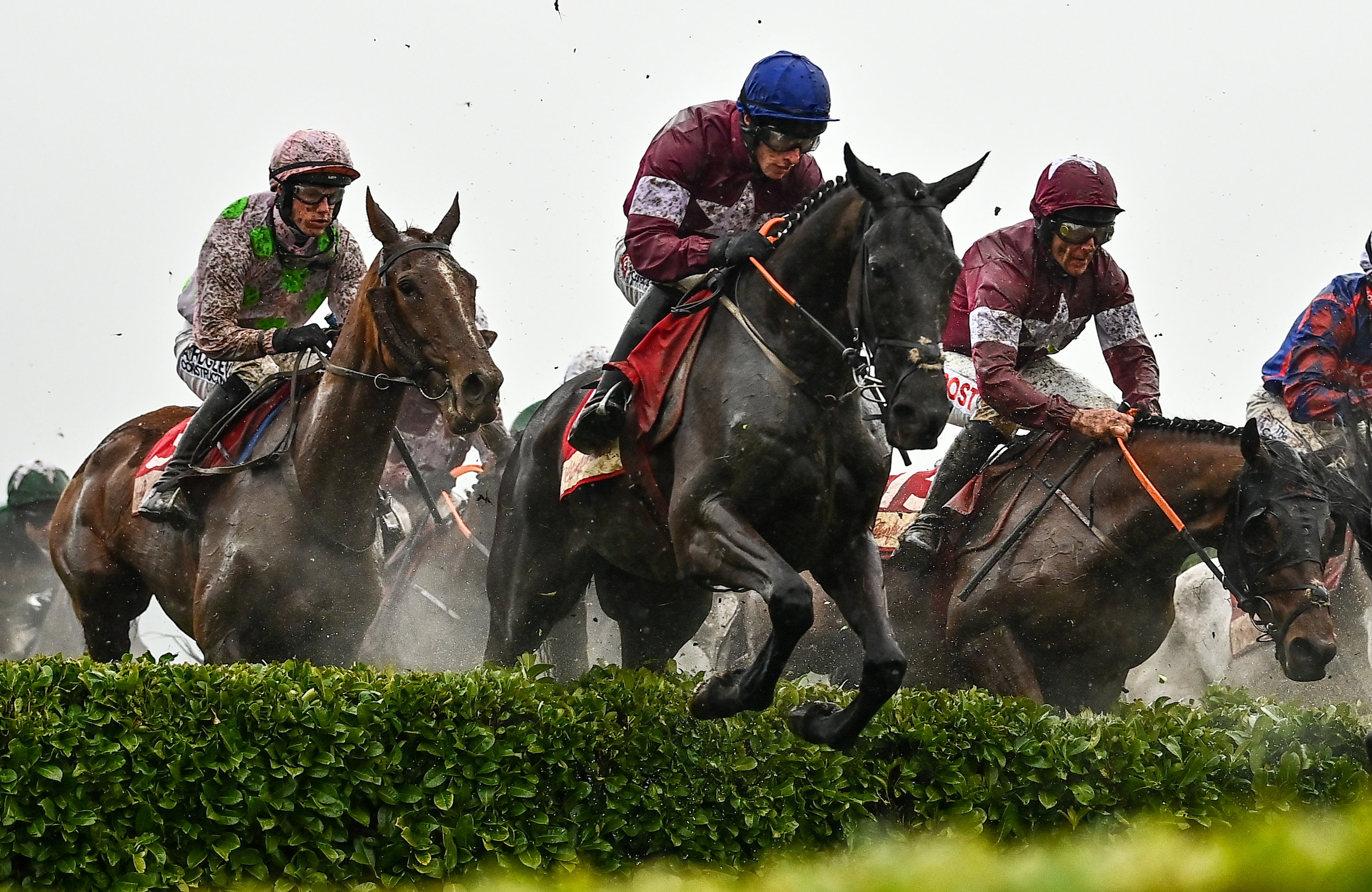Delta Work Favored to Shine in the Grand National
A 33-1 Grand National outsider, Delta Work, is gaining momentum as a top contender for the prestigious race following a victory at the Cheltenham Festival.
Weather Conditions Could Impact Rivals' Decision to Run
The forecasted sloppy going at the Grand National on Saturday could work in Delta Work's favor, with owner Michael O'Leary confident that the horse will excel in the soft, heavy ground.
Top Contenders Consider Alternatives due to Ground Conditions
With the ground conditions posing a challenge, top-weighted horses like Conflated, Stattler, and Galvin are contemplating running elsewhere if the conditions do not improve, according to owner Ronnie Bartlett.
Nail-Biting Wait for Final Confirmations Stage
As the final confirmations stage unfolds, there is anticipation regarding whether Harry Redknapp's Festival winner, Shakem Up’Arry, will secure a spot in the race, with bookies expecting substantial backing for the horse.
Bookies Fear Christian Williams' Kitty's Light
Christian Williams' supreme stayer, Kitty’s Light, is also causing a stir among bookies, who are wary of the horse's potential performance in the Grand National.
Frequently Asked Questions
What does it mean when a horse is described as a ‘stayer’ in racing terms?
In racing terminology, a ‘stayer’ is a type of horse that excels on long distances. These distances typically exceed a mile and four-furlongs. Stayers have to be able to run fast over long distances. Renowned stayers compete in long distance races like the Ascot Gold Cup.
How is the safety of horses and riders maintained during a race?
Safety is paramount in UK horseracing. This includes both the horses and their riders. Racecourses must meet strict safety standards. This includes the condition of tracks and the quality or the jumps. Horses receive health checks prior to and after races. Jocks are also required to wear protective gear like helmets and body guards. Moreover, the sport employs rapid response teams and veterinarians on standby to manage any incidents swiftly and competently.
What are the UK’s most prestigious horse races?
The United Kingdom hosts several acclaimed horse racing events that attract audiences worldwide. The Epsom Derby and Royal Ascot are the most prestigious. These events, which showcase the best of equine ability and provide rich tradition as well as history, have also become social occasions. There are even dress codes for these events and they receive royal patronage.
What is the role a steward plays in horse racing
Stewards ensure that racing is fair and conducted according to rules. Stewards have the responsibility of overseeing the conduct and behavior of jockeys, other racing personnel and trainers. They monitor races for any rule infractions and hold hearings into any incidents. The Stewards are also empowered to impose penalties for any rule violation, including fines or suspensions.
How does handicapping in UK horse racing work?
In UK horseracing, the handicap system gives every horse an equally good chance of winning. In essence, horses are given different weights during the race depending on their past performance. Better horses carry heavier weights to level the playing field against horses with lesser past performances. The British Horseracing Authority is responsible for the handicapping process in the UK, and their team of handicappers regularly updates ratings following the results of races.
What types of horse racing are there in the UK and what is their history?
There are several different horse races that take place in the UK. Most of them fall under two main categories, Flat racing and National Hunt Racing (or jump). Flat racing takes place over level tracks from five furlongs to two miles. National Hunt racing focuses on both the horse’s jumping and speed. Races like steeplechases and hurdles feature obstacles. There are many variations of these two broad categories. For example, handicaps, maidens and conditions races. Each with its own rules and criteria.
Statistics
- The Royal Ascot, held annually in June, draws crowds of 300,000 over its five-day meeting.
- British horse racing generates over £350 million in annual tax revenues for the UK government.
- The annual Cheltenham Festival has an economic impact of over £100 million for the local Gloucestershire economy.
- In the UK, more than 14,000 people are employed directly in the horse racing industry.
- The prize money for the Epsom Derby stands at approximately £1.5 million, with the winner taking home a substantial portion of this sum.
- The National Hunt racing season in the UK sees approximately 1,000 races with hurdles or fences each year.
External Links
tattersalls.com
britishhorseracing.com
britishhorseracingmuseum.org.uk
ascot.com
thejockeyclub.co.uk
thejockeyclub.co.uk
How To
How to train for a career as a jockey in the UK
Aspiring British jockeys can begin their education at the British Racing School (or Northern Racing College) where they will learn about horse care, riding and fitness. Following this, the jockey should undergo an apprenticeship in order to gain racing experience. Fitness and weight are essential. The British Horseracing Authority issues licenses to potential jockeys who pass practical tests and racing rules exams. Career development for jockeys is based on continuous professional growth and personal fitness regimens.

